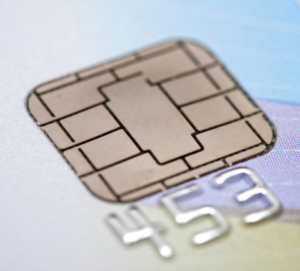Older Technologies Facilitate Credit Card Fraud
America the Superpower is also the super choice for criminals wanting to steal credit card information. Security experts warn that this problem will get worse before it improves.
 That ancient technology of the magnetic strip on the back of credit and debit cards is a godsend to criminals. The easy-to-copy band stores account information using a technology the same as that of cassette tapes. U.S. credit card technology has not kept up with fraudsters. One challenge facing the industry is that it is very expensive for companies to upgrade their credit card security.
That ancient technology of the magnetic strip on the back of credit and debit cards is a godsend to criminals. The easy-to-copy band stores account information using a technology the same as that of cassette tapes. U.S. credit card technology has not kept up with fraudsters. One challenge facing the industry is that it is very expensive for companies to upgrade their credit card security.
When a card is swiped, the strip allows communication between the retailer’s bank and the customer’s bank: 1.4 seconds. That’s enough time for the network to record the cardholder’s information on computers controlled by the payment processing companies.
Hackers can snatch account data (including security codes) as it crosses the network or steal it from databases. Though the security code is required for most online purchases, thieves don’t care as long as the magnetic strips are easily reproducible and placed on fake cards—which they then use for purchases or sell the card data online. Three bucks will get you a fraudulent card with limited customer information and a low balance.
You’ll have to wait at least until the fall of 2015 for U.S. credit card companies to ditch the magnetic strips for digital chips. Retailers want more: each transaction to require a PIN rather than signature.
What can retailers do in the meantime?
- Internet-based payment systems should be protected from hackers with strong firewalls.
- Data should be encrypted, so that hackers see gibberish.
This may be easier said than done, because implementing these safeguards isn’t cheap. The U.S. lags behind most other nations when it comes to credit and debit cards; most countries’ cards use the digital chips that contain account information.
Every time the card is used, the chip generates a code that’s unique. This makes it a lot harder for criminals to duplicate the cards—so difficult, in fact, that usually they don’t even bother trying to replicate them. It would really be great if the U.S. could catch on to this technology.
Robert Siciliano is an Identity Theft Expert to AllClear ID. He is the author of 99 Things You Wish You Knew Before Your Identity Was Stolen See him knock’em dead in this identity theft prevention video. Disclosures.


























